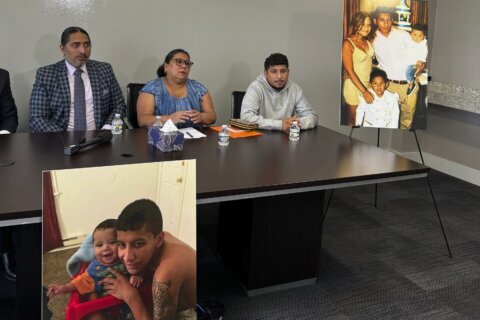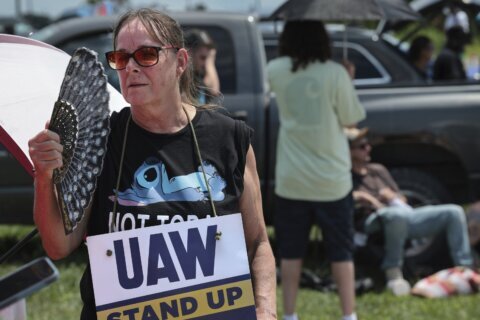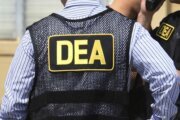NEW YORK (AP) — Prosecutors are urging a judge to uphold Donald Trump’s historic hush money conviction, arguing in court papers made public Thursday that the verdict should stand despite the Supreme Court’s recent ruling on presidential immunity.
The Manhattan district attorney’s office said in a court filing that the high court’s opinion “has no bearing” on the hush money case because it involves unofficial acts for which a former president is not immune.
“There is no basis for disturbing the jury’s verdict,” prosecutors wrote in a 66-page filing.
Lawyers for the Republican presidential nominee are trying to get the verdict — and even the indictment — tossed out because of the Supreme Court’s decision July 1. The ruling insulates former presidents from being criminally prosecuted for official acts and bars prosecutors from pointing to official acts as evidence that a commander in chief’s unofficial actions were illegal.
That decision came about a month after a Manhattan jury found Trump guilty of falsifying business records to conceal a deal to pay off porn actor Stormy Daniels shortly before the 2016 election. At the time, she was considering going public with a story of a 2006 sexual encounter with Trump, who says no such thing happened. He has denied any wrongdoing.
Trump was a private citizen when his then-lawyer, Michael Cohen, paid Daniels. But Trump was president when Cohen was reimbursed. Prosecutors say those repayments were misleadingly logged simply as legal expenses in Trump’s company records. Cohen testified that he and Trump discussed the repayment arrangement in the Oval Office.
Trump’s lawyers have argued that prosecutors rushed to trial instead of waiting for the Supreme Court’s view on presidential immunity, and that the trial was “tainted” by evidence that should not have been allowed under the high court’s ruling.
Judge Juan M. Merchan plans to rule Sept. 6 on the Trump lawyers’ request. The judge has set Trump’s sentencing for Sept. 18, “if such is still necessary” after he reaches his conclusions about immunity.
The sentencing, which carries the potential for anything from probation to up to four years in prison, initially was set for mid-July. But within hours of the Supreme Court’s ruling, Trump’s team asked to delay the sentencing. Merchan soon pushed the sentencing back to consider their immunity arguments.
Under the Supreme Court’s decision, lower courts are largely the ones that will have to figure out what constitutes an official act.
Indeed, even the conservative justices responsible for the majority opinion differed about what is proper for jurors to hear about a president’s conduct.
In a separate concurring opinion, Justice Amy Coney Barrett wrote that the Constitution does not require juries to be blinded “to the circumstances surrounding conduct for which presidents can be held liable” and suggested that it would needlessly “hamstring” a prosecutor’s case to prohibit any mention of an official act in question.
Before the Supreme Court ruling, Trump’s lawyers brought up presidential immunity in a failed bid last year to get the hush money case moved from state court to federal court.
Later, they tried to hold off the hush money trial until the Supreme Court ruled on his immunity claim, which arose from a separate prosecution — the Washington-based federal criminal case surrounding Trump’s efforts to overturn his 2020 presidential election loss.
Trump’s lawyers never raised presidential immunity as a defense in the hush money trial, but they tried unsuccessfully to prevent prosecutors from showing the jury evidence from his time in office.
Copyright © 2024 The Associated Press. All rights reserved. This material may not be published, broadcast, written or redistributed.







